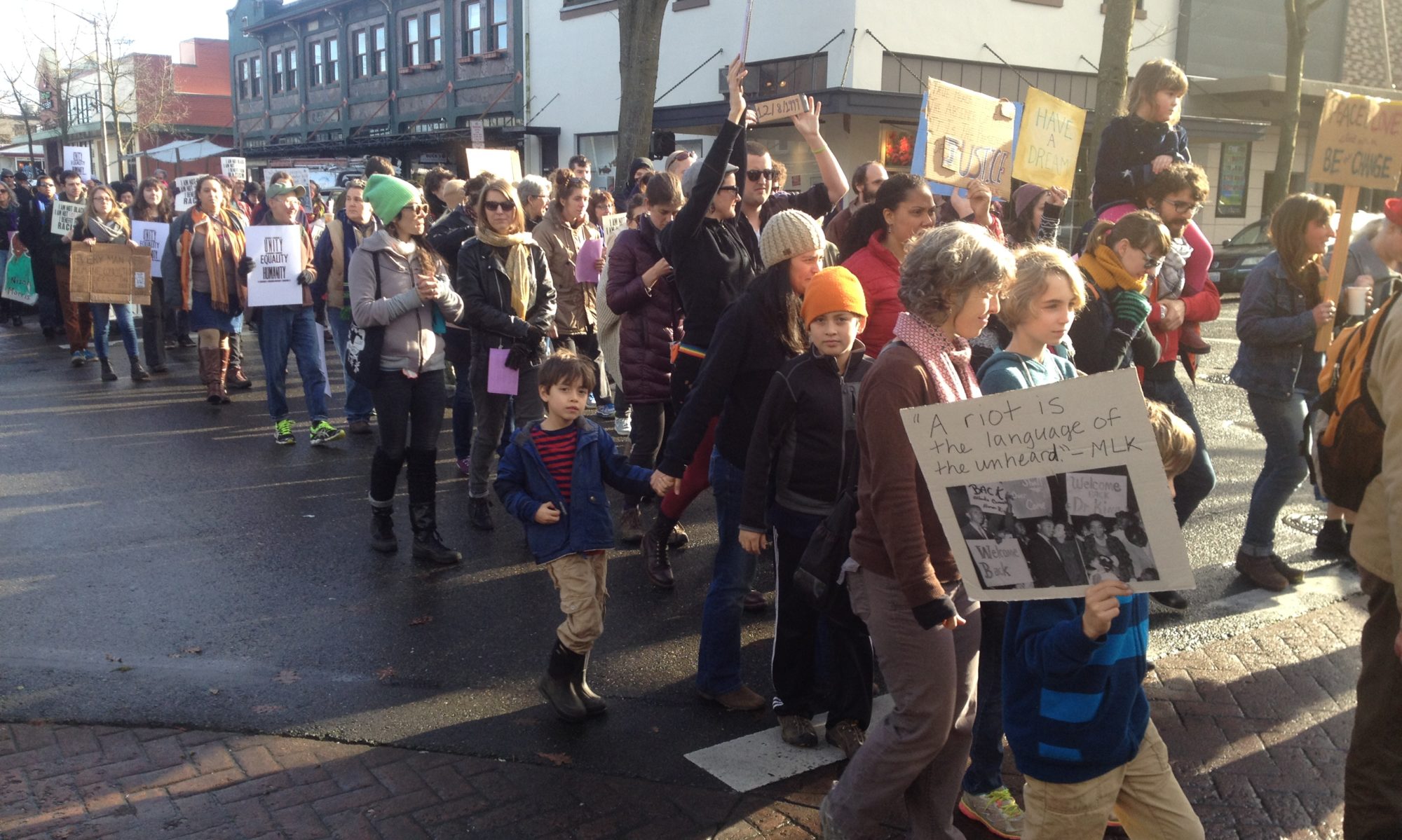Legislature and Policy Change
The goal of our legislative agenda is to make sure our democratically elected representatives are hearing the collective voice of their constituents and honoring their wishes. Unfortunately in the era we live in it’s all too common for the interests of the 1% to dictate government policy, very often at the expense of the majorities well being. This is particularly hard on those who have already been disenfranchised by a broken system that seems designed to keep folks who have been knocked down from standing back up. Nationwide, single mothers and their children are the population most likely to be poor; 29% of female-headed households live in poverty, 45% if they contain children under the age of five. Single mothers and their children make up 80% of the nations welfare recipients. In the face of such daunting statistics we refuse to accept this injustice as inevitable; together we can make ourselves heard.
POWER’s legislative platform is designed by our members, 90% of whom are women, 80% of which live below the poverty line. Our members make themselves heard by doing outreach in their communities, hosting community meetings, leading workshops, as well as writing and phoning their legislative representatives about their firsthand experiences with DSHS and suggested improvements. A cornerstone of this effort is registering low-income women to vote, and continuing their voter education through our newsletters and community conversations. This model of grassroots organizing helps participants become more civically engaged and continue the outreach efforts themselves. As a communally led organization POWER encourages each and every one of its members to lead the charge in creating the change they would like to see.
In 2011 alone we registered hundreds of low-income voters, and prepared over 50 parents to meet with their legislators, presenting powerful testimony before local, state, and national committees. Participants used their individual stories to enact statewide changes in the welfare offices, increasing accessibility to people with literacy, language, and other barriers. Our Seattle and Olympia members attend Regional meetings with Department of Social and Health Services (DSHS) officials. We are the only benefit recipients involved in regional welfare planning. Several legislators contacted us for information or stories about how the time limit on welfare benefits are affecting families. We answered their questions and referred them to agencies that might be able to provide more information about the increased needs for services. During the 2011 legislative session we attended a conference call with the Governor’s office and weekly meetings with allies. Five POWER members testified at legislative hearings to ask for a more humane budget, increased revenue, and improvements to Children’s Protective Services and the Department of Social and Health services. Three of the bills we favored passed.
Our hard work paid off at the end of the 2011 legislative session when Governor Gregoire signed into law the cost savings measures we had spent the legislative session presenting in a wide variety of ways. Our suggestions made cutbacks without harming families by allowing parents to choose whether to look for work outside the home or care for their own children, while simultaneously reducing the onerous demands of the ineffective, expensive WorkFirst program. Yet for every step forward there’s a step back. Governor Gregoire also implemented the most draconian set of welfare cuts we’ve seen, ending cash assistance to nearly 13,000 children. The Governor added cuts to childcare, a strict 5-year time limit, severe cuts to cash assistance, and the destruction of the emergency assistance program, which was designed to keep children from homelessness. As a result welfare funds had excess savings while families suffered inhumane consequences.
Despite our setbacks we refuse to let our spirits be hampered. Our unquenchable determination will ultimately prevail despite our hardships. When necessary we express this determination through non-violent protest. Many times throughout the 2011 legislative session POWER members joined thousands of other demonstrators, from a wide variety of organizations, to protest budget cuts. We engaged in street theater, song, chanting, occupying, letters, visits, signs, and rallies. During one such protest Shelly Robbins, a POWER Board member and mother of a special needs child, perfectly encapsulated the spirit of POWER when she joined a group of protestors who refused to leave the capitol until they had a promise from legislators to put people before profits. They were carried from the Capitol by state troopers and given no trespassing warnings. Shelly went back the next day and was arrested. Later, in court, the no trespassing orders were ruled unconstitutional! Like Shelly POWER refuses to leave the capitol until our needs have been met and we receive the security, rights, and dignity we are all entitled to as human beings.
